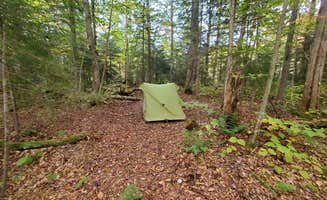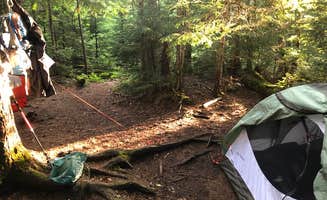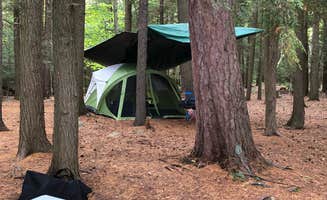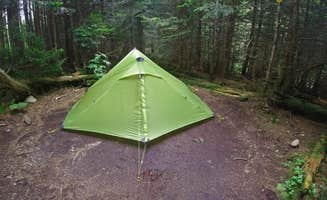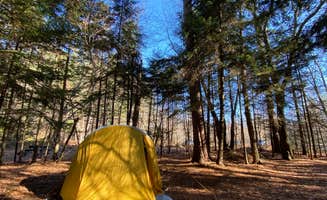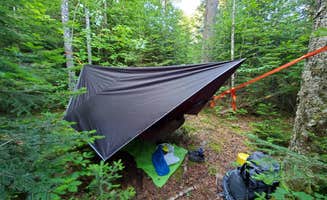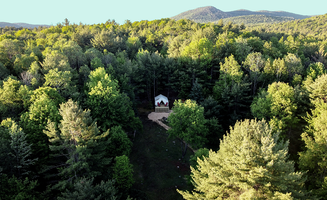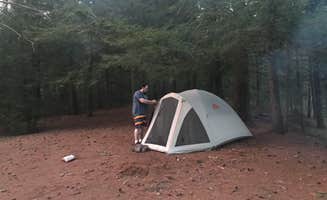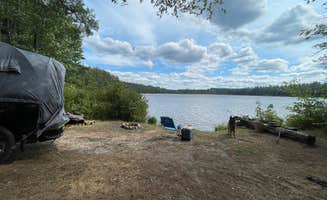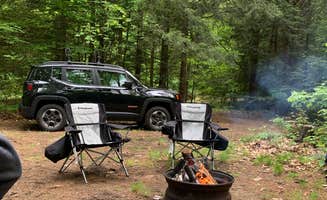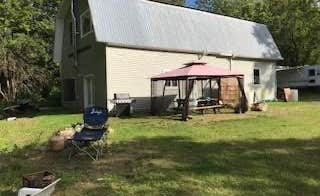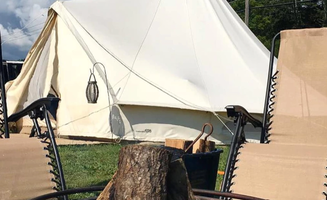Dispersed tent camping near Long Lake, New York offers primitive sites throughout the southern Adirondacks wilderness region. The area sits at approximately 1,600 feet elevation with dense forest dominated by pine, hemlock, and maple trees. Summer temperatures typically range from 55-80°F, while winter temperatures regularly drop below freezing with significant snowfall from November through April. Most primitive sites require campers to pack out all trash and provide their own drinking water.
What to do
Kayaking and canoeing on Saranac Lake Islands: Access more than 80 island campsites from Middle Saranac Lake, where paddlers can reach private peninsulas and island sites. Saranac Lake Islands Adirondack Preserve Campground offers a unique water-based camping experience. "We rented a motorboat to get to our own private little peninsula on the middle saranac. One of the coolest experiences I've ever had in my life- surrounded by nature- water, woods, birds and fishing for pike, bass and sunfish," reports one visitor.
Hiking to remote backcountry lean-tos: Several primitive sites serve as basecamps for summit attempts. Feldspar Lean-to provides a strategic overnight location for hikers. "If you're coming from Marcy Dam by way of Lake Colden, this campsite is a great spot to stop for the night on the way to Mt. Marcy. There's a good water flow for water that is safe to drink," notes one hiker.
Wildlife observation: Many campsites offer opportunities to spot local wildlife including black bears, deer, and various bird species. Bring binoculars and maintain proper food storage protocols. Campers often report loon sightings on the lakes and ponds throughout the region. Early mornings and dusk provide optimal wildlife viewing times at lakeside sites.
What campers like
Privacy between sites: The dispersed nature of many primitive sites ensures minimal contact with other campers. "Our island had 4 other campsites on it and we barely saw or heard our neighbors," notes one camper at Saranac Lake Islands.
Sand bars for swimming: Some lake locations feature accessible swimming areas. "There is a large sand bar within a very short walk which was a great place to hang out," mentions a camper at Seventh Lake Primitive Camping. "We happened upon it on our way to the seventh lake campground and ended up staying for two nights. We accessed the sites by water on a canoe trip."
Campsite amenities at established sites: While primitive sites have minimal facilities, some established areas provide basic comforts. "Great campsite with a nice lean-to. Fire pit, picnic table, and a privy. A bit further you will find some tent spots too. Plenty of water around," reports a visitor at Ward Brook Campsite.
What you should know
Bear safety requirements: Bear-resistant food containers are mandatory in most areas. "Use bear bins- and clean up your camp. You'll save the Bears lives and you'll be happier!" advises a camper at Flowed Lands. Rangers conduct regular compliance checks during peak seasons.
Weather preparation: Mountain conditions can change rapidly with temperature swings of 30+ degrees in a single day. Pack layers and rain gear regardless of the forecast. Late afternoon thunderstorms are common in summer months, while early fall brings frost potential even in September.
Water access considerations: Water availability varies by site location. Many require filtering from natural sources. Bring a quality water filter or purification tablets. Streams may run low in late summer, requiring longer walks to water sources at some sites.
Parking limitations: Popular trailheads fill quickly during peak season. "If it is a saturday during peak season the lot fills as early as 6am!" warns a camper regarding the ADK LOJ parking area that provides access to Lake Colden and other backcountry sites.
Tips for camping with families
Easy access sites for kids: Some locations offer shorter hikes or drive-up options better suited for young children. "We stayed at site number 5, I think. It was by the water in the woods just a little bit. Picnic table, fire ring and several outhouses nearby. Beautiful surroundings," notes a visitor at Cedar River Entrance Camping.
Winter camping considerations: Families should be especially cautious with cold-weather camping. "Stayed in a campground for one night just so I could hike Mount Marcy in the morning! It was 40 dollars a night and it has a great hot shower and flush toilet," reports a visitor at Wilderness Campground at Heart Lake, one of the few sites with heated facilities for winter camping.
Multiple-day logistics: For extended family trips, consider base camping with day excursions. "We had a very pleasant stay here and personally found the weekdays to be best for 'camp days' given there were few people—weekends are PACKED," advises a family that stayed at Wilderness Campground at Heart Lake.
Tips from RVers
Road condition alerts: Many access roads are unpaved and deteriorate seasonally. "Beware of the roads coming in. 40MPH is too fast for these torn up roads," cautions a visitor to Wilderness Campground at Heart Lake. Spring thaw periods (March-May) often create the most challenging driving conditions.
Alternative accommodations: For those seeking more comfort, some areas offer cabin options. "We graduated to a travel trailer and have gotten a little old to be sleeping in tents," notes a long-time visitor to Tioga Point Campground, explaining why they no longer use this boat-in only site.


